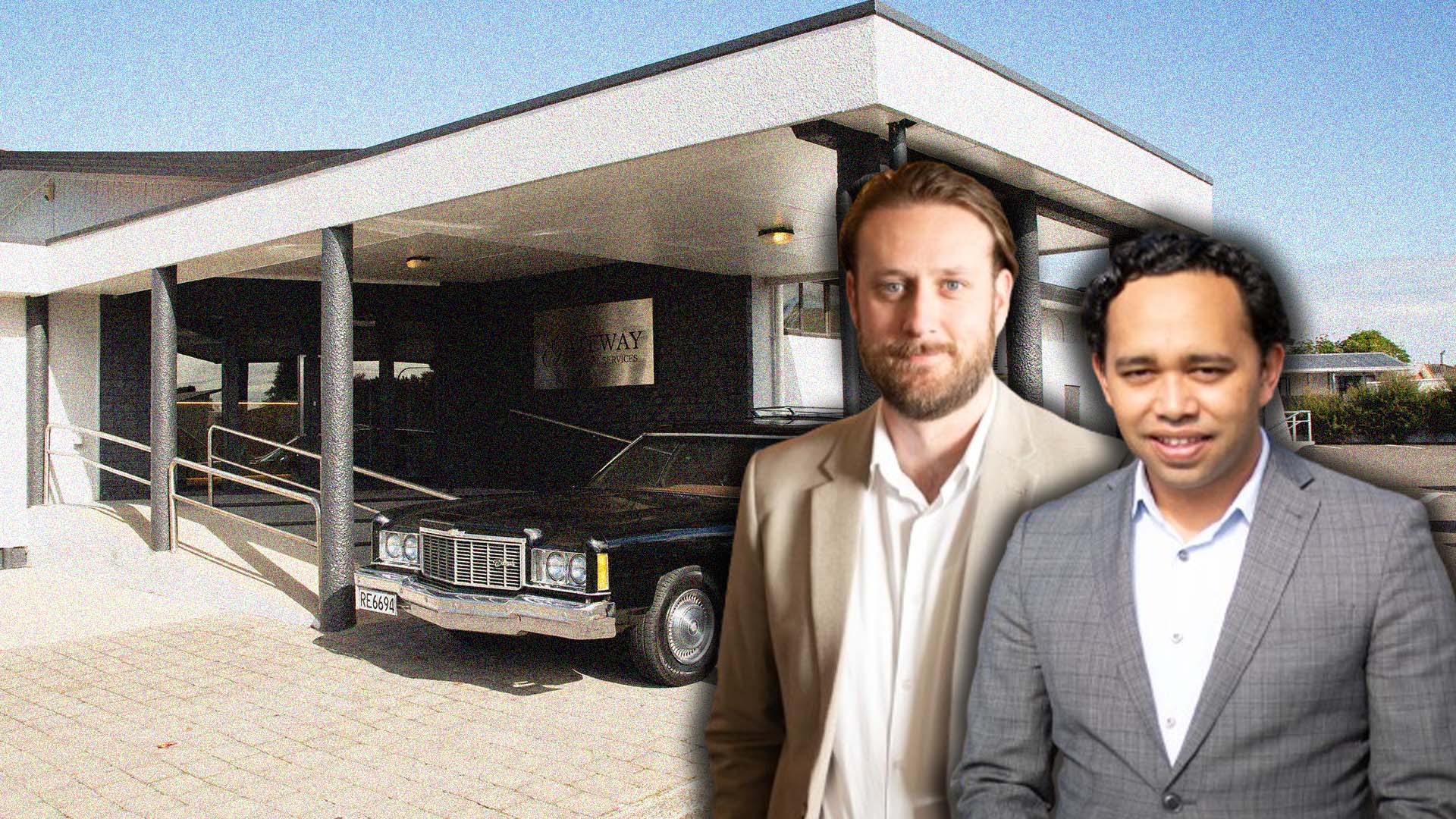Life as a funeral director: ‘Serving my iwi by doing this mahi’
By Mandy Te
The funeral industry has undergone major changes and challenges due to the impacts of Covid-19, the cost of living crisis and a shift in how people view funerals.
We talk to two funeral directors at a Whakatāne funeral home about where they see the future of the industry.
Growing up, Bradley Shaw says he was never any good at school.
“I changed tack and read a careers book and it said funeral director. And I was like, Oh, that looks like a bit of me.”
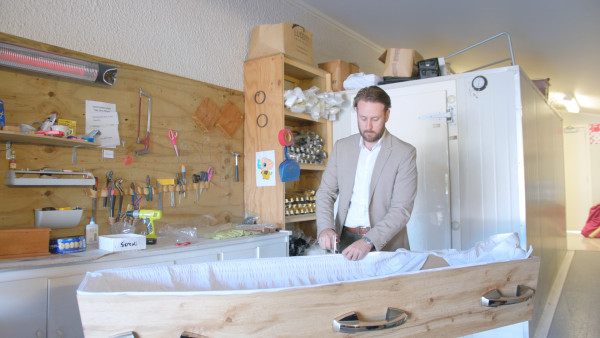
Gateway Funeral Services owner and funeral director Bradley Shaw putting together a casket. Source: Liam van Eeden/Re: News
At 16, he became the yard boy at a local funeral home - washing nine cars a day, cleaning the toilets and helping decorate the coffins.
He then started working in the mortuary where he learnt about embalming and by the time he was 20, he and his family bought Gateway Funeral Service in Whakatāne.
The future of the funeral industry
Shaw says he has seen a lot of change over the last 15 years in the industry.
The future of the funeral industry is an interesting one, he says.
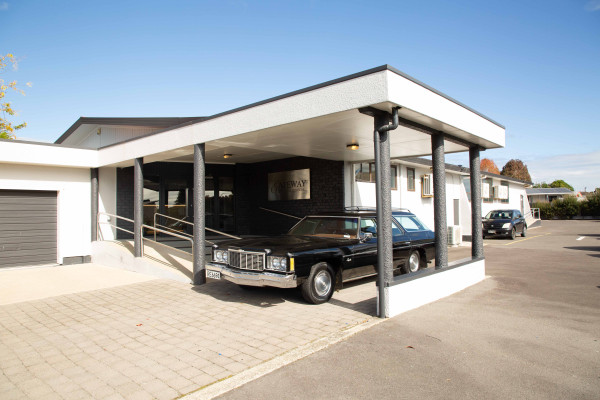
Gateway Funeral Services in Whakatāne. Source: Liam van Eeden/Re: News
Funeral directors are dealing with an increase in direct cremation, where bodies are taken from where they have died and go straight to the crematorium.
Others didn’t want the fuss of having a funeral and a big farewell and ecological funerals are becoming more popular, he says.
But for some families, direct cremation is the only option.
“Funerals are getting expensive and they’re really hard to pay for, for some families … it shouldn’t be like that.”
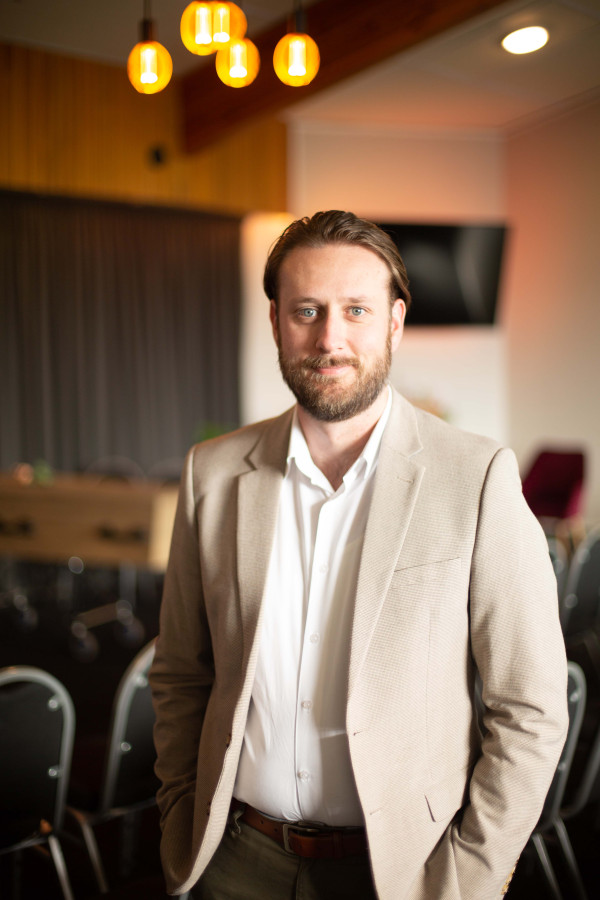
Bradley Shaw says the future of the funeral industry is an interesting one. Source: Liam van Eeden/Re: News
A lone journey
Larni Hepi, a funeral director and embalmer at Gateway Funeral Services, says “the funeral industry is being challenged in its current state with a generational shift when it comes to this ritual of death”.
Hepi (Ngāti Awa, Ngāi Tūhoe and Ngāti Wai) says he felt many Māori were disconnected from their marae - and from rituals.
He was seeing a lot of tūpāpaku (deceased bodies) go through a direct cremation and whānau who preferred to provide their own casket and undertake their own processes.
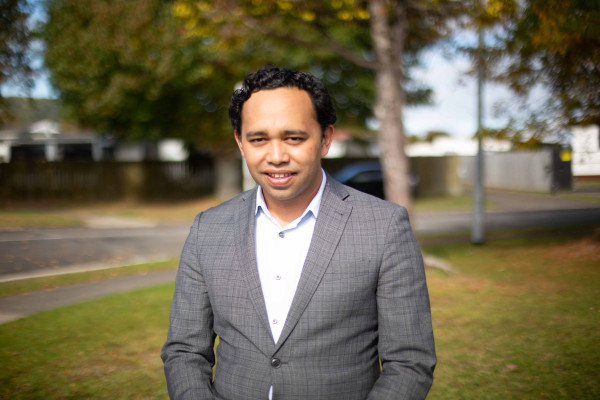
Funeral director Larni Hepi says embalming and the funeral directing process is “service to a second degree”. Source: Liam van Eeden/Re: News
While Hepi acknowledges that death is very personal and the discussion around it changes depending on the person, their family, and the beliefs of their iwi, the funeral director says his heart breaks for the disconnection some Māori have from their marae.
“A lot of us have relied on our marae, hapū, our whānau to sustain us and that financial burden that’s created when someone passes away. But because of that disconnect we no longer have that support system,” he says.
“It’s really sad when we uplift someone and take them straight to the crematorium because it’s a life lived and it’s one that won’t be celebrated as full as can be.
“Mokemoke (lonely) is the right word for that because it’s a lone journey and I think as a funeral director and as an embalmer, and more so as a member of my iwi, hapū and whānau, it breaks me heart that we are no longer connected in the way that we’re used to.”
But Hepi has hope in the next generation - the kōhanga reo boomers. Young Māori who have grown up with te reo me ōna tikanga practices.
“[They have] the know-how when it comes to tikanga and the understanding of that and saying, ‘hey, come back to the marae or come back to your people and let’s carry on these ancient rituals that have existed for centuries.’”
Serving whānau, community and iwi
Hepi says many people in the industry were drawn to work there as a result of a personal loss.
“A big part of my mum’s life was service to her marae, her hapū, her community and when she passed away, I was given the opportunity to take that on and to lead by example.”
Hepi says he found embalming and the funeral directing process “service to a second degree”.
“It comes naturally for me because I was always around the marae, I was always around te tūpāpaku. And so it was an opportunity to ensure I’m serving my whānau, my community and ultimately my entire iwi by doing this mahi.”
Hepi works closely with Gateway Funeral Service’s embalmer Vonnie Waihirere, who is better known as Aunty Vonnie. “Everyone across the Bay of Plenty refers to her as aunty.”
Hepi says for both of them, working in the funeral industry is more than just a role - it’s a connection between them and whānau, between them and the spiritual world.
“When we’re on a marae, they don’t necessarily look at us as a funeral director or an embalmer. They just look at us as one part of the whānau.”
The price of funerals
Shaw says at his funeral home, a basic funeral with a basic casket without any of the trimmings would be somewhere between $5500 to $7000.
Then, it goes up from there.
In New Zealand, you can sometimes get financial support to help cover the cost of a funeral.
A Funeral Grant scheme from the Ministry of Social Development (MSD) can provide up to $2559.20 - if you meet their criteria.
But the funeral industry has long been saying that amount is not enough and have been calling for the grant to be closer to what ACC can provide if someone dies from an injury they cover - up to $7793.13.
According to the Funeral Directors Association of New Zealand, the East Coast was the highest user of WINZ grants on a per capita basis.
Shaw says the grant is inadequate and doesn’t meet where the cost of funerals are.
There’s a big gap between what is being provided from a grant perspective and a “basic, memorable, meaningful funeral service”, Shaw says.
“It needs to be addressed because our costs are only going up and yet the funeral grant isn’t following.”
The funeral industry has become more expensive as the years have gone by, Shaw says.
“We have staff working 24 hours a day, seven days a week. We have buildings, we have rent, we have power, we have maintenance, we have seven vehicles - we have all sorts of costs that are associated with running a funeral home.”
“Those costs just have continued to go up and up, and so I guess from our perspective, there’s not much we can do about it. We’ve tried our best to keep our costs down as low as possible.
“But unfortunately, at the end of the day, we are a business and we do have to make money like anybody else.”
Social Development Minister Louise Upston says “the maximum amount available through a Funeral Grant increases each year in line with the cost of living”.
“While changes beyond this are not on the coalition Government’s current work programme, it may be possible when economic conditions allow,” Upston says.
“This payment is intended to help those who have no other means of meeting the expenses of a funeral or tangi, but it is not intended to cover the whole cost.
“New Zealanders are struggling with the high cost of living after six years of economic mismanagement, and it would be unfair on taxpayers to ask them to do this.”
Upston says the government has chosen to prioritise spending taxpayer dollars on “easing the cost of living and investing in essential frontline services like healthcare, schools, and disability services”.
“Those who aren’t eligible for a Funeral Grant may also be able to have their funeral costs covered by ACC or Veterans’ Affairs.”
In the meantime, Funeral Directors Association of New Zealand chief executive Gillian Boyes says it will continue to advocate to the government for “an increase that gives greater parity to the assistance available through the ACC Funeral Grant”.
The role of funerals
Shaw says working in the funeral industry has changed him in ways he couldn’t have imagined.
“One was obviously owning my own business so I’ve had to grow up really fast and learn how to deal with older people and that side of things.”
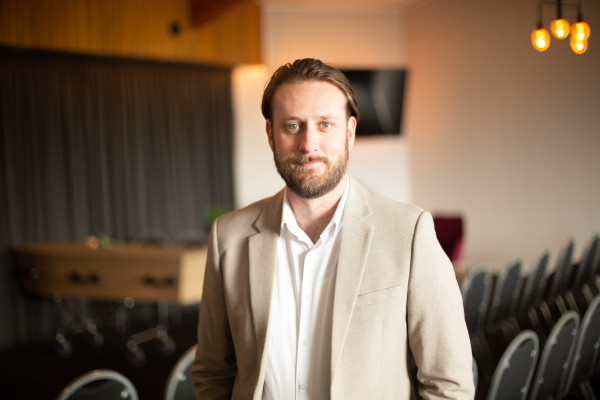
Funeral director Bradley Shaw says funerals allow people to share their grief with one another and celebrate somebody’s life. Source: Liam van Eeden/Re: News
“Emotionally, it’s probably been a little bit taxing over the years on me as far as being in touch with your emotions because you’re dealing with other people’s emotions all the time,” he says.
“And so you don’t take stock of your own at times.”
Shaw says it’s the responsibility of funeral directors to educate people about why funerals are necessary - and why they have been done for so many years.
“It allows people to share their grief and to be with one another and to create a memory and to celebrate somebody’s life.”
“Everybody gets the same dignity and the same respect.”
More stories:
Saturday night at Huntly International Speedway
“They’re like my second family.”
Why I’m visiting the iwi who protected the remains of my Chinese ancestor
“Having this connection that transcends time and cultures as well is unique.”
Why working hard doesn’t always make you rich
“I will be a Māori Millionaire.”
